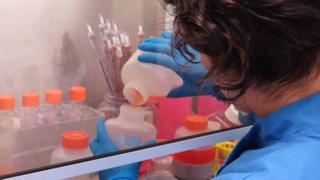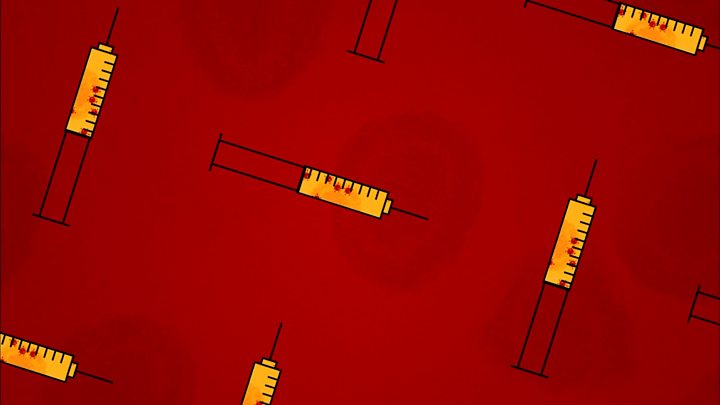


Image copyright
SEAN ELIAS – OXFORD VACCINE TRIAL
Work began on a vaccine in January
Pharmaceutical giant AstraZeneca has agreed to manufacture and distribute a Covid-19 vaccine being developed by the University of Oxford if the treatment proves effective.
The company’s chief executive, Pascal Soriot, said that “the need for a vaccine to defeat the virus is urgent”.
The first human trial in Europe of a vaccine began in Oxford last week.
Data from this phase of testing could be available from the University’s Jenner Institute as early as mid-June.
However, scientists have said that the successful development of a vaccine will take at least one year.



Media playback is unsupported on your device
Mr Soriot added: “Our hope is that, by joining forces, we can accelerate the globalisation of a vaccine to combat the virus and protect people from the deadliest pandemic in a generation.”
Professor Sir John Bell, Regius Professor of Medicine at Oxford University, told the BBC’s Today programme that the agreement was important in order to “see whether we can get this vaccine both to work and manufactured and distributed to both the UK and globally”.
He added: “The challenge is that, once we get an approval by the regulators, we don’t to have to go back to the beginning and work out how we manufacture it at scale.”
The partnership with AstraZeneca aims to build capacity to produce tens of millions of doses by the end of the year if the treatment is effective.
“Our manufacturing capacity in the UK for vaccines isn’t where it needs to be, and we’re going to work together with AstraZeneca to improve that considerably,” Prof Bell added.
Business Secretary Alok Sharma said that the agreement was a “vital step” that could “advance” any manufacturing process.
“It will also ensure that, should the vaccine being developed by Oxford University’s Jenner Institute work, it will be available as early as possible, helping to protect thousands of lives from this disease,” he added.
AstraZeneca’s share price increased by nearly 3% off the back of the announcement.

